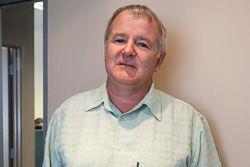
New Zealand and Australian apple and pear growers have recommitted to a multi-million dollar joint venture to produce new apple and pear cultivars.
Growers will invest NZ$11.5m (US$7.67m) over the next five years through their established joint venture company, Prevar.
Formed in 2004, Prevar's purpose is to commercialise new apple and pear cultivars through research and development with New Zealand body Plant and Food Research.
The investment will be shared equally between Pipfruit New Zealand (PNZ) and Apple & Pear Australia Limited (APAL).
Plant & Food Research is a 10 per cent shareholder in the venture, and the Associated International Group of Nurseries (AIGN) has been appointed for global cultivar distribution and evaluation.
"This reinvestment in Prevar demonstrates the strong foundation the company has built over the past five years," said company CEO Brett Ennis.
"The skills and expertise of our partners will allow us to build on the lessons we have learnt and deliver new, exciting cultivars to Australasian growers.
"Prevar has released five new apple cultivars and three new pear cultivars since 2005 with additional licenses to be concluded in the very near future," said Dr Ennis.
Pipfruit New Zealand chairman Ian Palmer said the continuing relationship would be beneficial for the apple and pear industry in the country.
"PNZ remains very committed to Prevar. The New Zealand pipfruit industry will continue to benefit from the new cultivars with growers having the first supply opportunities in world markets," Mr Palmer said.
APAL general manager Tony Russell echoed those sentiments
"APAL believes that Prevar has made good progress in developing world class apples and pears," he said.
"In the six years since its inception, Prevar has demonstrated the quality of its commercial pipeline, and we are excited to provide support into the future."
Australian investment in Prevar is facilitated by Horticulture Australia Limited (HAL) in partnership with APAL, is funded by apple and pear levies as well as voluntary contributions, and the Australian government matches funding for all HAL's research and development programmes.






No comments yet